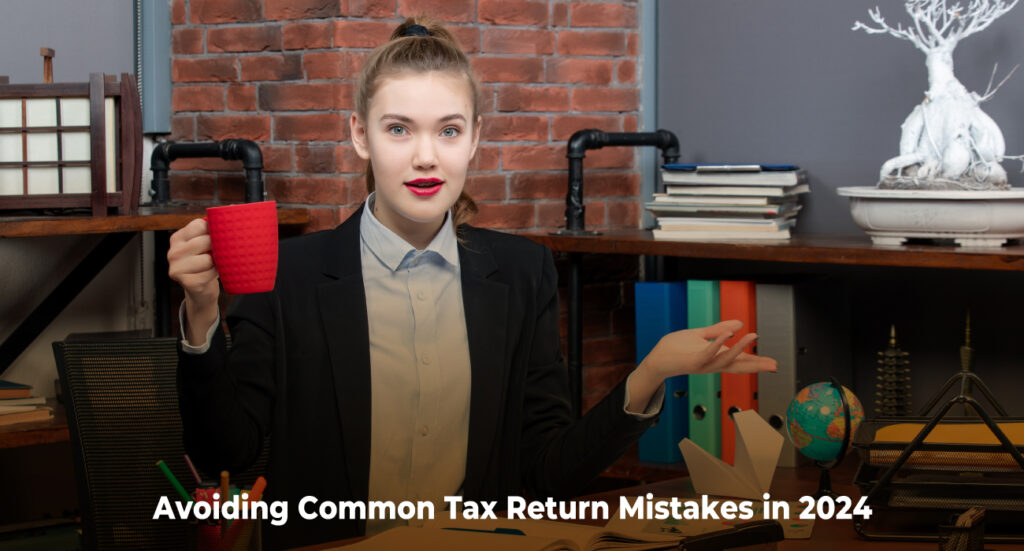Why You Shouldn’t Lodge Your Tax Return in July: Avoiding Common Tax Return Mistakes in 2024
Each year, countless Australian taxpayers, eager to receive their tax refunds, rush to file their tax returns within the first two weeks of July. However, the Australian Taxation Office (ATO) strongly advises against this rush to lodge income tax returns on July 1, 2024, or in the days immediately following. Instead, waiting until all income details from various sources are pre-filled in the tax return is recommended for a smoother and more accurate filing process.
By the end of July, most individuals will find that information such as bank interest, dividend income, payments from other government agencies, and private health insurance details are automatically pre-filled in their tax returns. This automated process not only saves valuable time but also ensures a higher degree of accuracy, significantly reducing the chances of the ATO needing to amend the return later.
Moreover, you can conveniently use the myGov platform to check if your employer has marked your income statement as ‘tax ready’ and if your pre-fill information is available in myTax before submitting your return. Taking these steps can help you avoid the need for later amendments and prevent potential delays in processing refunds. By waiting until the end of July, you can ensure all necessary information is accurately captured, resulting in a more efficient and stress-free tax return experience.

If you need assistance with this process or have any questions about your 2024FY tax return, contact Investax Group. Our team is here to provide expert guidance and support, ensuring you have everything you need for a smooth tax filing. Now, let’s dive into the rest of the article where we discuss the ATO’s focus areas for this tax season.
ATO FLAGS
The Australian Taxation Office (ATO) has announced its priorities for the 2024 financial year, advising taxpayers of three key areas where mistakes are commonly made:
- Failing to include all income when lodging tax returns
- Incorrectly claiming work-related expenses
- Inflating claims for rental properties
Assistant Commissioner Rob Thomson noted that while these errors are often unintentional, some may be deliberate. He urges taxpayers to take the necessary time and care to accurately declare all information.
In this article, we will delve into each of these areas in detail, providing guidance and tips to help you avoid common pitfalls and ensure your tax return is accurate and compliant.

Failing to include all income when lodging tax returns
If you have income from multiple sources, wait until all this information is pre-filled in your tax return before lodging. Many mistakes happen in July when people forget to include bank interest, dividends, and payments from government agencies or private health insurers.
Common mistakes also include income from Employee Share Schemes managed by overseas payroll offices that may not be aware of Australian reporting standards, failing to report capital gains tax for the sale of shares, and incorrect assessments of the six-year exemption for Principal Place of Residence (PPOR) capital gains tax.
Most of this information will be automatically pre-filled by the end of July, making the process smoother and saving you time. Lodging early, before this information is available, increases the chance of errors in your tax return.
While it may be tempting to file your return early and get it out of the way, waiting a few weeks ensures you get it right.
Incorrectly claiming work-related expenses
For the 2024 financial year, there are significant changes to how you can claim work-related deductions, particularly for working from home. The ATO has updated the fixed rate method, now including more items and increasing the rate, with adjustments to the records you need to keep.
You must maintain detailed records to substantiate your claims. Specifically, you’ll need:
- Documentation of the actual hours you worked from home (such as a calendar, diary, or spreadsheet).
- Proof of additional running costs, like electricity or internet bills.
You have two options for calculating your working from home expenses: the actual cost method or the fixed rate method. Keeping good records allows you to choose the best method for your situation and claim all the expenses you’re entitled to.
Avoid the temptation to copy your previous year’s claims without review, as this could lead to the ATO contacting you for clarification. If you’re not eligible or don’t have the right records, your deductions will be disallowed.
When claiming any work-related expense, remember these three golden rules:
- You must have spent the money yourself and not been reimbursed.
- The expense must directly relate to earning your income.
- You must have a record (usually a receipt) to prove it.

Inflating Claims for Rental Properties
The Australian Taxation Office (ATO) is closely monitoring rental property tax returns this year, focusing on common mistakes and areas of concern. Rental property owners should be aware of the frequent errors identified by the ATO and ensure accurate and complete records. If you’re using a tax agent, make sure they have all the necessary information to prepare your return correctly. Here are the key points to keep in mind:
- Frequent Mistakes:
- Many rental property owners are unsure about which expenses they can claim and when.
- Common errors include:
- Misclassifying repair expenses versus capital expenses.
- Overstating deductions.
- Failing to keep proper documentation.
- According to the data, 9 out of 10 rental property owners are getting it wrong. One common issue is with repair and maintenance deductions. General repairs, like replacing damaged carpet or fixing a broken window, can be claimed as immediate deductions. However, capital expenses, such as initial repairs on a newly purchased property or significant improvements like installing a new kitchen, are not immediately deductible. These are considered capital improvements and can only be deducted over time.
- Another example is, immediate deductions can be claimed for repairs like fixing a broken window, but capital items like a new dishwasher must be depreciated over time unless they cost $300 or less.
- Generally, a property must be available for rent to claim ongoing costs as tax deductions. However, there are provisions for properties undergoing repairs or renovations. If your property is temporarily uninhabitable and not generating rental income, you can still claim deductions for certain costs incurred during this period. These costs include council rates and mortgage interest.
- ATO’s Data Cross-Checks:
- The ATO cross-references information from banks, land title offices, and other sources to verify income and expenses reported on tax returns.
- Interest Deductions:
- Only the interest on the loan portion used for the rental property can be claimed.
- Loans used for both personal and rental purposes need careful apportioning of interest.
- Body Corporate Fees:
- Deductions can be claimed for routine maintenance fees when incurred.
- Special purpose fund payments are deductible only when billed.
- Borrowing Expenses:
- These should be claimed over five years or the loan’s duration, whichever is shorter.
- Stamp duty (except in ACT) should be added to the cost base and not claimed as a deduction while renting.
- Keeping Records:
- Maintain thorough records, including receipts, invoices, and bank statements.
- Ensure records detail the supplier’s name, ABN, amount, nature of the expense, purchase date, and document date.
- Capital Expenses:
- Repairs can be claimed immediately, while capital improvements are depreciated over time, typically at 2.5% over 40 years.
- Proper classification of expenses is essential to avoid penalties.
This year, the ATO is especially focused on inflated claims intended to offset increases in rental income for a greater tax benefit.

In conclusion, handling your 2024 tax return doesn’t have to be stressful, even with the ATO’s focus on accurate reporting and dodgy claims. By being mindful of areas like income reporting, work-related expenses, and rental property claims, you can avoid common mistakes and ensure a smoother filing process.
If you find yourself uncertain about your tax submissions or need help with your 2024FY tax return, contact Investax Group. Our experienced team is ready to assist you in navigating the tax process, ensuring compliance and helping you maximise your returns. Check out our tools and calculators to get a clear picture of your tax liability, and don’t forget to use our free checklist to gather all necessary documents.
Don’t let tax season overwhelm you—reach out to Investax Group today for professional guidance and support in achieving an accurate and stress-free tax return.
General Advice Warning
The material on this page and on this website has been prepared for general information purposes only and not as specific advice to any particular person. Any advice contained on this page and on this website is General Advice and does not take into account any person’s particular investment objectives, financial situation and particular needs.
Before making an investment decision based on this advice you should consider, with or without the assistance of a securities adviser, whether it is appropriate to your particular investment needs, objectives and financial circumstances. In addition, the examples provided on this page and on this website are for illustrative purposes only.Although every effort has been made to verify the accuracy of the information contained on this page and on our website, Investax Group, its officers, representatives, employees and agents disclaim all liability [except for any liability which by law cannot be excluded), for any error, inaccuracy in, or omission from the information contained in this website or any loss or damage suffered by any person directly or indirectly through relying on this information.





